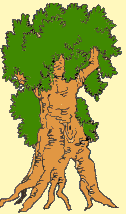Cure Myocardial Infarction Naturally
Heal Myocardial Infarction Naturally. Discover an effective herbal treatment to relieve the aftereffects of a heart attack.
Learn more about curing myocardial infarction naturally.
Myocardial infarction, commonly referred to as a "heart attack," is one of the leading causes of death worldwide. This cardiovascular condition occurs when blood flow to a part of the heart muscle is interrupted, causing the death of myocardial (heart muscle) cells. However, rapid diagnosis, preventive measures, and appropriate treatment can limit the damage and even save lives.
This article offers a comprehensive exploration of this pathology: its mechanisms, risk factors, clinical manifestations, diagnostic approaches, and treatment strategies, not to mention preventive measures and recommendations for life after a heart attack.
Definition of Myocardial Infarction
A myocardial infarction occurs when a coronary artery, responsible for supplying oxygenated blood to the heart muscle, suddenly becomes blocked. This obstruction, most often due to the formation of a blood clot (thrombus) on a ruptured atheromatous plaque (accumulation of lipids in the artery wall), prevents blood flow to a portion of the heart.
Deprived of oxygen, the muscle cells in this region begin to die after 20 to 30 minutes. Without prompt intervention, this necrosis spreads, affecting the heart's pumping function and exposing the patient to serious complications.
Possible Causes of Heart Attack
The main causes of heart attacks are linked to a pathological process called atherosclerosis, which consists of the accumulation of fatty deposits in the arteries.
Modifiable Factors:
Smoking: The most influential factor.
High blood pressure: aggravates vascular damage.
Hypercholesterolemia: especially LDL cholesterol.
Diabetes mellitus: increases the risk of atherosclerosis.
Sedentary lifestyle: promotes metabolic imbalances.
Unbalanced diet: high in saturated fats and salt.
Chronic stress: can cause coronary spasms.
Excessive alcohol or drug use: such as cocaine.
Non-modifiable factors:
Age: increased risk after age 45 in men, 55 in women.
Sex: men are generally more affected.
Heredity: family history of cardiovascular disease.
Stroke Symptoms: Healing Myocardial Infarction Naturally
The classic presentation of a heart attack is well known, but it can vary depending on age, sex, or the presence of other conditions.
Typical symptoms:
Intense chest pain: a pinching sensation behind the sternum, sometimes radiating to the left arm, jaw, back, or epigastrium.
Sensation of oppression or burning.
Shortness of breath (dyspnea).
Nausea, vomiting.
Pallor, cold sweats, intense anxiety.
Loss of consciousness (in severe cases).
Atypical symptoms:
More common in women, the elderly, or diabetics:
Abdominal pain,
Vague malaise,
Extreme fatigue,
Digestive disturbances,
Absence of pain (silent heart attack).
Heart Attack Diagnosis
Diagnosis must be rapid and is based on several tests:
Electrocardiogram (ECG)
This is the key test, which can detect:
ST-segment elevation (STEMI),
ST-segment depression or negative T waves (NSTEMI),
Cardiac rhythm disturbances.
Cardiac marker assays
Mainly troponin: it is released into the blood during myocardial necrosis. It is elevated in the hours following the heart attack.
Imaging tests
Coronary angiography: an invasive test to visualize the coronary arteries.
Echocardiography: assesses the heart's pumping function.
Cardiac MRI: in case of diagnostic doubt.
Emergency Treatments
Speed of treatment is crucial. This is often referred to as the "golden hour," or the first hour following the onset of symptoms.
Prehospital Resuscitation
Immediately alert the emergency services (SAMU, 15 in France).
Sitting or semi-sitting position, calm the patient.
Aspirin (if not allergic) to thin the blood.
Reopening the blocked coronary artery
Two options:
Coronary angioplasty (stenting): introduction of a balloon to unblock the artery + insertion of a stent.
Intravenous thrombolysis: injection of clot-dissolving drugs (if angioplasty is not available quickly).
Associated Medications
Anticoagulants: heparin.
Antiplatelet drugs: clopidogrel.
Beta-blockers: slow the heart rate.
Angiotensin-Converting Enzyme (ACE) inhibitors: to protect the heart.
Statins: to lower cholesterol.
Possible Complications
A poorly managed or extensive heart attack can lead to serious complications:
Immediate
Cardiac arrest
Severe arrhythmias (ventricular fibrillation)
Acute heart failure
Cardiogenic shock
Medium or long-term
Chronic heart failure
Persistent rhythm disturbances
Recurrent heart attack
Left ventricular aneurysm
Post-heart attack depression
Heart attack prevention
Primary prevention (before any accident)
Quit smoking
Eat healthy (Mediterranean diet)
Exercise regularly (at least 30 minutes/day)
Control diabetes, hypertension, and cholesterol
Limit stress and promote sleep
Secondary Prevention (after a heart attack)
Compliance with prescribed treatment,
Regular medical follow-up,
Participation in a cardiac rehabilitation program,
Strict adoption of a healthy lifestyle
Natural Heart Attack Treatment: Healing a Myocardial Infarction Naturally
Myocardial infarction is a major medical emergency that requires rapid and effective treatment. Its prevention relies primarily on combating risk factors, which are largely modifiable. Today, thanks to medical advances, the majority of patients survive a heart attack and can return to an active life. However, this requires continued vigilance, a healthy lifestyle, and, above all, effective herbal treatment to reverse the after-effects. Information and awareness remain the best tools to limit the ravages of this silent but formidable pathology.
https://www.santeafricaine.com/boutique/tisanes-produits-bio-recettes-remedes-naturels/produit-275-solution-naturelle-hypoxemie-traitement-.html
Add a comment






















